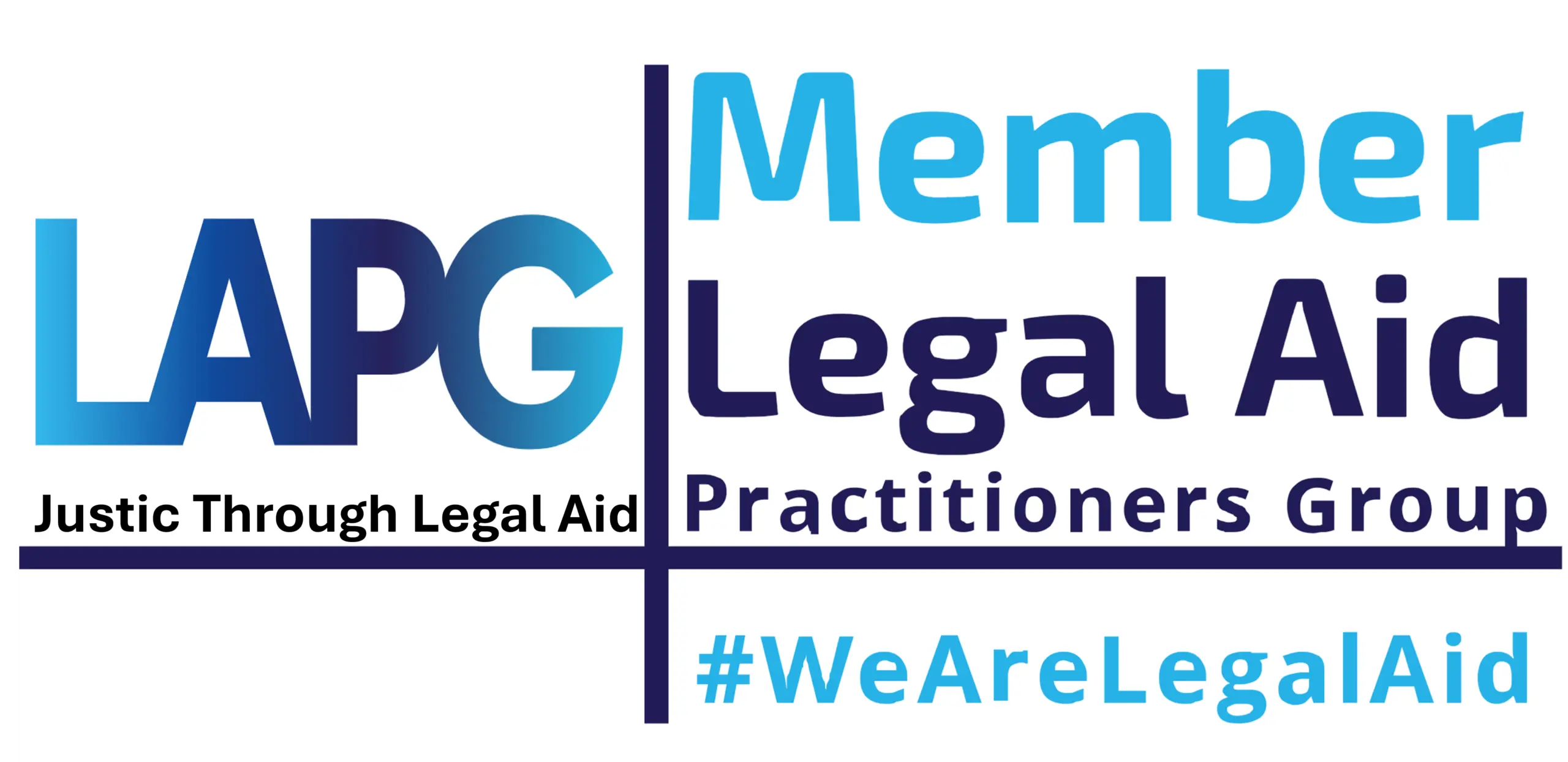Legal Protection for Unmarried Couples
Unlike married couples, unmarried partners don’t benefit from automatic legal protections when their relationship ends. Whether it’s property, finances, or children, cohabitants often face uncertainty and misunderstanding about their rights.
At Goodman Ray, we specialise providing unmarried couples legal advice and guiding unmarried couples through these complexities. From establishing your interest in a home under the Trusts of Land Act to securing income or capital for your children under Schedule 1 of the Children Act 1989, our solicitors provide tailored, compassionate support to protect your interests both during and after separation.

What issues should unmarried couples going through separation consider?
When unmarried couples separate, there are a variety of legal issues to address, especially regarding property, finances, and children. Unlike married couples, unmarried partners do not have the same automatic legal rights upon separation, which can lead to complex and challenging situations. There is no such concept as “common law” and often the law may differ to what couples may expect to happen. Seeking legal advice for unmarried couples is essential when facing separation.
Some of the key issues, explained in more detail below, are:
- How to deal with property owned in your sole or joint names
- Capital or income provision for the benefit of children
- Child maintenance
Understanding your rights around property, finances, and children can prevent disputes and provide clarity at a difficult time. Goodman Ray provide expert guidance to ensure your interests, and the interests of your family, are protected.
How to deal with property owned in your sole or joint names
In situations where you and your partner jointly own a property, we can advise you on your cohabitation rights and your position under the Trusts of Land and Appointment of Trustees Act 1996 (TOLATA). This legislation determines who is entitled to a home when unmarried couples separate, even if your name is not on the title deeds. Whether you live in a jointly owned property, a shared tenancy, or have made financial contributions towards a home, we can guide you through your property rights, help you understand your legal options, and support you in achieving a fair resolution to any property dispute.
Capital or income provision for the benefit of children
If you have children and are separating from your partner, we understand the importance of ensuring their welfare remains at the forefront. Under Schedule 1 of the Children Act 1989, we can assist you with securing financial support for your children, even if there is no formal relationship between you and your partner. This can include claims for property for a parent to live in with the children, and/or lump sums, and/or maintenance orders in excess of child maintenance through the Child Maintenance Service.
The purpose of these claims is to ensure a child’s lifestyle and upbringing is similar with both parents and that their future is safeguarded, regardless of your relationship status.
Child Maintenance
We can assist with the assessment of the level of child maintenance to be paid by the non-residential parent. Our team can guide you through the Child Maintenance Service (CMS) process, helping to ensure that payments are set at an appropriate level and collected efficiently.
In situations where the non-resident parents income is higher than £3,000 per week, you may be eligible to secure a top-up to the CMS assessed rates to ensure that your children’s needs are met. These awards are designed to increase the amount of maintenance paid beyond what the CMS has ordered.
Our experienced solicitors can help you navigate this process to secure appropriate additional financial support is paid.

A Comparison of Non Court Dispute Resolution
In this article by Ann Thompson and Elena Panayi, you can find out more about each of the different NCDR methods for Family Law including Family Mediation, Arbitration and the non-Court Dispute Resolution costs. Read more…
What are the Financial Provisions for Unmarried Couples?
Unmarried couples have limited automatic financial rights compared to married couples. After a separation, there is no legal obligation for one partner to provide support to the other, and assets are generally divided according to legal ownership. Disputes can arise over jointly owned property, savings, or promises of shared ownership, which may need to be resolved through civil court claims, including TOLATA or proprietary estoppel claims.
Financial provision for children is always prioritised. Both parents are legally obliged to provide child maintenance, and disputes can be addressed through Schedule 1 claims under the Children Act 1989, which consider the financial circumstances of the parents and the child’s needs. To protect their interests, unmarried couples are encouraged to plan proactively with tools such as declarations of trust and cohabitation agreements, and to seek specialist legal advice to ensure fair financial arrangements and avoid costly disputes.
How can a Cohabitation Agreement help Unmarried Couples?
Cohabitation agreements are essential legal tools for unmarried couples who choose to live together. These agreements can help clarify financial responsibilities, property rights, and other important matters that may arise during the course of the relationship or in the event of a separation. While the law doesn’t offer the same automatic protections to cohabiting couples as it does to married couples, a well-drafted cohabitation agreement provides peace of mind, ensuring that both parties understand their rights and obligations.
At Goodman Ray, we offer expert legal guidance on creating cohabitation agreements tailored to your unique circumstances, helping you navigate the complexities of living together without marriage. Our team is committed to ensuring that your interests are protected and that you have a clear understanding of your legal position.
Unmarried Couples Solicitors: Our approach
Goodman Ray offers expert advice and support for unmarried couples, whether at the start of their relationship to assist with a cohabitation agreement, or when facing separation. Our experienced solicitors can guide you on matters such as property division, child maintenance, financial support, and cohabitation agreements. We are here to help you understand your legal rights and ensure that your interests are protected during and after the end of a relationship.
Our expert solicitors at Goodman Ray are here to provide clear, compassionate guidance and help you navigate difficult circumstances. We pride ourselves on providing the best advice whilst having the dispute resolution prowess to give separating couples the very best prospect of resolving issues amicably wherever possible. Our team at Goodman Ray are conscious that the prospect of separation for unmarried couples can be a time where one or both individuals may feel vulnerable and uncertain of their future. We are able to help support you throughout this process and help you find an outcome using the right approach for you and your family.
We fully endorse exploring non-court dispute resolution as a way of trying to resolve issues and our lawyers have expertise across the spectrum of options available. Regardless of how you would like to go about resolving issues, we have the expertise to provide that support, whether that be as solicitors, mediators or collaborative lawyers.
Contact us for Legal Advice for Unmarried Couples
For a personalized consultation, contact us today and discuss how we can support you through this challenging time. Our team of experienced solicitors are ready to assist with clear, compassionate advice and representation tailored to your situation.
If you are seeking legal advice for unmarried couples, please get in touch using whatever method is easiest for you. You can use the form on our website, you can email us at mail@goodmanray.com or email the solicitor or mediator you would like to work with here directly using the email address on their profile. Alternatively, feel free to ring us on 020 7608 1227 and you will be able to speak with someone who can discuss how we can assist you.
Legal Advice for Unmarried Couples – FAQs
Unmarried couples who live together are known as cohabitants. Unlike married couples or civil partners, cohabiting partners do not automatically have the same legal rights. There is no such thing as “common law marriage”. While they may have some rights and responsibilities under specific laws, such as property rights or child maintenance, they are not afforded the same protections as married couples when it comes to separation or inheritance.
No, unmarried couples do not have the same automatic legal rights as married couples. For example, cohabiting partners do not have the same rights to division of property or spousal maintenance upon separation unless there are specific agreements or legal frameworks in place, such as a claim under Schedule 1 of the Children Act 1989 for child-related financial matters.
A Cohabitation Agreement is a legal document that outlines the rights and responsibilities of unmarried couples who live together. This agreement can cover various issues such as how property will be divided in the event of separation, financial support, and arrangements regarding children. It helps to clarify expectations and prevent future disputes.
While not legally required, it is highly recommended for unmarried couples to enter into a Cohabitation Agreement. This agreement provides clarity and protection, especially if the relationship ends or if one partner is seeking financial support or property claims. It can provide certainty and reduce the potential for future disputes.
The division of family property for unmarried couples can be complex, as there is no automatic right to share property in the way there is for married couples. If there is a dispute, legal steps such as applying to the court under the Trusts of Land and Appointment of Trustees Act 1996 may be necessary to resolve the situation. If the property is in only one person’s name, the other partner may establish a beneficial interest through a claim in equity.
When unmarried parents separate, the welfare of any children involved remains a priority. Unmarried parents have the same parental responsibility as married parents, so decisions about the children’s upbringing must be made jointly. If the parents cannot agree, the court may intervene to ensure the children’s best interests are met. Financial support for children can also be arranged through the Child Maintenance Service or under Schedule 1 of the Children Act 1989.
Unmarried couples generally do not owe financial responsibility to one another after separation, unless there are children involved. Financial support may be provided for children through the Child Maintenance Service or by court order. However, for the partner, there is no automatic right to claim financial support unless specific circumstances exist (such as a claim for financial provision for children under Schedule 1 of the Children Act 1989).
Unmarried couples do not automatically inherit from one another if one partner dies. In the absence of a will, the surviving partner would have no legal claim to the deceased’s estate unless they can establish a claim under The Inheritance Act (Provision for family and dependants) Act 1975. It is crucial for unmarried couples to make a will to ensure that the surviving partner is provided for in the event of death.




















